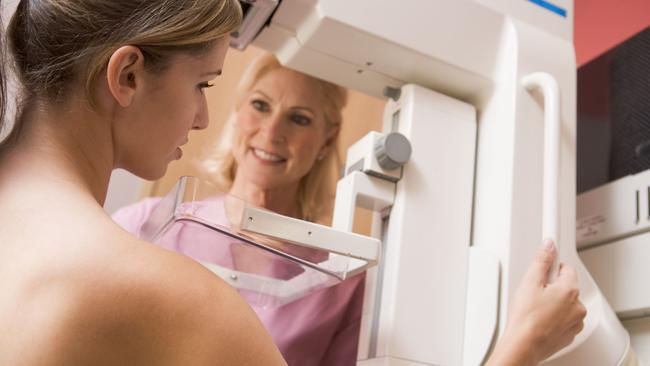Cancer Council SA urging public to take advantage of national screening programs
A NEW campaign being launched on Sunday urging people to take advantage of cancer screening program will focus on the euphoric feeling of taking a test and being given the all-clear.
THE euphoric feeling of being given the all-clear after a cancer test is the centrepiece of a new campaign urging the public to take advantage of national screening programs.
Cancer Council SA is teaming up with Adelaide PHN and Country SA PHN (primary health networks) to launch the new campaign today to encourage South Australians to get screened for cancer and “get on with living”.
It comes as research shows large numbers of people are not taking the free tests, despite the lifesaving success the programs have had with early detection.

The campaign will be the first time that the organisations have joined together to invest in a statewide cancer screening promotional campaign.
Australia runs three national cancer screening programs, for bowel, breast and cervical cancer, which Cancer Council SA chief executive Lincoln Size said is vital for early detection of cancer.
“Early detection not only improves health outcomes, it reduces overall costs to the health system and most importantly, saves lives,” he said.
“The evidence for screening is undeniable. For example, for women diagnosed with breast cancer, the risk of death was 42 per cent lower among those diagnosed through BreastScreen Australia than those who had never screened, and 90 per cent of all bowel cancers can be successfully treated if caught early.
“Recent Cancer Council research shows that through a combination of the new Cervical Screening Test and the HPV vaccination, cervical cancer is likely to be eliminated as a public health issue within 20 years.

“It’s statistics like this that highlight just how important screening is, which is why we’re launching this new campaign encouraging South Australians to take advantage of the free screening tests available to them.”
The campaign focuses on the euphoric feeling people feel after they have completed a screening test and everything comes back OK.
The aim is to focus on celebrating life as opposed to the fear and negative feelings which may deter people from completing a screening test.
Country SA PHN chief executive Kim Hosking and Adelaide PHN chief executive Deb Lee said that despite all the evidence showing that bowel, breast and cervical cancer screening effectively picks up cancer at earlier stages, there are still many South Australians who are putting off their routine screening tests.
“Research shows that in 2015-2016, less than half of eligible people completed their free, at-home bowel screening test, around a third of eligible women didn’t have a mammogram and 40 per cent of eligible women didn’t have a Cervical Screening Test,” they noted.
“We want to raise awareness about screening and encourage South Australians to have a conversation with their GP about which cancer screening tests are available to them.
“Our hope is that through raising awareness, we can encourage further participation in the national cancer screening programs, and ultimately save more lives.”
DO YOU NEED SCREENING

Breast cancer screening
Women aged 50 to 74 should have a free screening mammogram every two years through BreastScreen SA. Book an appointment on 13 20 50.
All women, regardless of their age, should be ‘breast aware’ by familiarising themselves with the look and feel of their breasts, even if they are having regular mammograms. Women are encouraged to speak to their GP about their family history for breast cancer.
Bowel cancer screening
If you are 50 years and older, complete a bowel cancer screening test every two years. The National Bowel Cancer Screening Program sends free bowel cancer screening kits to eligible people aged 50 to 74. For more information call 1800 118 868. Men and women are encouraged to speak to their GP about their family history for bowel cancer.
Cervical cancer screening
Since the introduction of the National Cervical Screening Program in 1991, the incidence and mortality from cervical cancer has halved in Australia.
The introduction of the new Cervical Screening Test in December 2017 will make a good program even better.
It’s predicted that a combination of screening and the HPV vaccination is likely to eliminate cervical cancer as a public health issue in Australia by 2035.
Women are due for their first cervical screening test at age 25. Women aged 25 and over are due for their first cervical screening test two years from their last Pap test.

